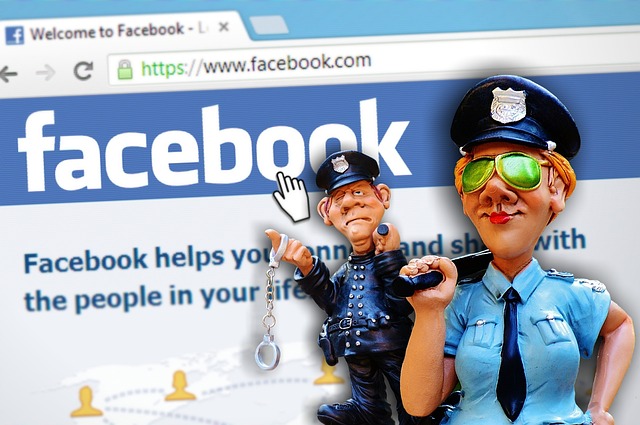What are the myriad of ways in which blockchain can be applied beyond its well-known use in cryptocurrency? How are companies expanding the boundaries of their industries by leveraging this technology? Can we envision a future where blockchain is as integral to business as the Internet itself is today?
Despite its revolutionary potential, the blockchain technology is still underutilized, primarily due to the complexities around its implementation and a lack of understanding. According to Deloitte’s 2019 Global Blockchain Survey, while there is a rise in blockchain adoption, about 43% of respondents list the implementation as a significant barrier. Adding to the dilemma, PwC’s 2018 survey reports that 27% of executives believe that a lack of trust among users is a critical problem. The proposed solution would be the introduction of clearer regulations and protocols in the USA to foster trust and facilitate the integration of blockchain across diverse business sectors.
In this article, you will learn about a broad scope of applications for blockchain that go beyond just cryptocurrency. Drawing from practical examples, we will explore how various companies are utilizing blockchain, from improving supply chain transparency to ameliorating digital identity security, enhancing interbank transactions, and beyond.
We will also delve into the potential challenges, including implementation hurdles and trust issues, and discuss how government regulations and development of standards might act as solutions to these problems. This article aims to demonstrate that blockchain’s potential extends much beyond the sphere of finance and cryptocurrency and how embracing it may revolutionize diverse business sectors.

Definitions and Discoveries: Understanding Blockchain Beyond Cryptocurrency
Blockchain is a digital ledger of verified transactions that are replicated and distributed across an entire network of computer systems. Beyond cryptocurrency like Bitcoin, organizations are exploring diverse applications of this technology. The key appeal of blockchain is its ability to eliminate intermediaries, ensuring utmost data security and transparency in various fields. For example, this technology is being applied in logistics for tracking purposes, in healthcare to keep personal health records, in finance for secure and quick transactions, and more. The hero in all these industries? Blockchain with its secure, clear, and unchangeable chains of data blocks. Thus, potential of blockchain goes beyond cryptocurrency.
Unveiling the Veil: Blockchain Transforming the Corporate Landscape Beyond Cryptocurrency
Reconceptualizing Supply Chains
One sector where blockchain technology is causing a seismic shift is in the organization of supply chains. A traditionally convoluted process burdened by numerous intermediaries and highly susceptible to fraud, it’s a space that could certainly benefit from the transparency and immutable nature of blockchain. Major global companies like Unilever, Walmart, and De Beers are already applying blockchain to improve the traceability of products, from food safety to conflict-free diamonds. By cataloging every step of the supply process on a decentralized and unalterable ledger, companies can provide consumers with verifiable proof of each product’s journey, fostering a new era of conscious consumerism based on trust and credibility generated by blockchain verification.
Healthcare and Blockchain
The incorporation of blockchain technology in healthcare is also gaining momentum and redesigning existing systems. One of the main issues plaguing the healthcare industries worldwide is patient data management. Blockchain presents an excellent solution to this problem. By storing patient data on a secure, immutably and decentralized chain, sensitive data can be accessed swiftly, only by authorized personnel, and with a traceable history of who accessed it. Such a system can also mitigate cases of fraudulent insurance claims, as the entire patient treatment process is recorded transparently on the chain.
In addition, using blockchain to track drug manufacturing and distribution can combat counterfeiting, a serious and costly issue in the pharmaceutical industry. Imagine having your prescribed medication’s entire manufacturing and distribution cycle transparent and verifiable. Such a system would create an extra layer of confidence in the authenticity of the medicine and provide invaluable lifesaving data in times of recalls or adverse drug reactions.
- Fit-for-purpose use of Blockchain in elections, promises a future of fair, transparent voting. The remote e-voting systems, implemented with blockchain, can ensure the integrity of election results by preventing duplicate voting and providing verifiable audit trails.
- The real estate industry stands to get massive disruption from blockchain technology. The cumbersome process of property transactions can be streamlined, enabling faster and efficient sale processes, lowering fraud chances, and reducing reliance on lawyers and brokers.
- In the media and entertainment industry, Blockchain can address issues of copyright infringement, royalty distribution, and content sharing by creating irrefutable records of creative artwork from the day of creation.
The use of blockchain technology in different industries is no longer a concept; it is a reality unfolding right before our eyes. As more businesses wake up to its potential and versatility, expect to see unexpected and ingenious implementations of blockchain that would ultimately reshape the ceiling of possibilities.
From Supply Chains to Elections: Diverse Blockchain Implementations Reshaping Traditional Infrastructures
What More Can Blockchain Do?
Blockchain technology has been highly associated with cryptocurrencies; yet, the question arises – Isn’t it high time to contemplate what more blockchain can offer beyond cryptocurrency? Can it reshape our world and how it works? Deciphering the answer to these questions opens up an eclectic treasure trove of possibilities. Predominantly, blockchain holds the potential to transform the way we perform transactions by promoting higher levels of transparency, authenticity, and security due to its decentralized nature. Thus, it undeniably offers a promising solution to certain domains where there exist issues related to trust, accessibility, and biology.
Challenges Faced in the Adoption of Blockchain
While the blockchain technology exhibits colossal potential, its implementation is hindered by several challenges. Foremost is the issue of scale; a larger number of transactions can put a high degree of strain on the blockchain. An expanded infrastructure necessitates higher computational power and storage capacity which impacts the technology’s efficiency and speed. Secondly, adoption of the technology itself poses a challenge. This innovative technology’s underlining intricacies and the need for a complete system overhaul discourage businesses from embracing it. Lastly, security also remains a major concern. Even though blockchain enhances security, the technology is not impervious to cyber threats which can possibly lead to data breaches.
Unlocking the Potential of Blockchain
Despite these challenges, several businesses have embraced blockchain technology, leveraging its potential for advantageous practices. Bank of America, for instance, uses blockchain for secure, trackable transactions thereby reducing the risk of fraud. Businesses in the healthcare sector stand out too. Medicalchain uses blockchain to store patients’ confidential health records facilitating easy, secure access and sharing. Dubai’s government also illustrates the technology’s value. Their current blockchain strategy aims to store all governmental documents on a blockchain by 2020, promoting efficiency, seamless service experiences and overall increased comfort of citizens.
Leading the Technological Revolution: Companies Pioneering Unconventional Blockchain Use Cases
A Fresh Perspective on Blockchain: More than Just Cryptocurrency?
Have you ever considered that Blockchain technology could extend beyond the realm of cryptocurrency? Indeed, the world is beginning to realize that Bitcoin, Ethereum, and the like only represent one corner of Blockchain’s potential. The central idea here is that Blockchain, with its power to create secure, decentralized, and transparent digital records, can offer solutions to multiple sectors beyond finance.
Today, the practicality of Blockchain has stretched to areas like supply chain management, healthcare, and even voting systems. In supply chain management, the challenge is to ensure the traceability and authenticity of products within a complex web of global transactions. A Blockchain-based system can trace a product’s journey from initial creation to the consumer, offering unparalleled transparency and trust. In healthcare, secure access to medical records is a perennial problem. However, a Blockchain-based digital record system can securely store and share patient data among authorized personnel, improving the quality of care and streamlining administrative procedures.
Best Practices: Emerging Blockchain Applications in Diverse Fields
Despite the challenges and scepticism, multiple companies have successfully utilized Blockchain to redefine their operational strategies. For instance, IBM and Walmart have collaborated to create a traceability system for food, where every transaction and transfer can be recorded on a tamper-proof Blockchain. This has helped Walmart enhance both its operational efficiency and customer trust. In the healthcare sector, Estonia has become a pioneer by placing the medical records of all its citizens on a secure and accessible Blockchain.
In the domain of digital identity too, Microsoft is making strides with its Project ION. Utilizing the Bitcoin Blockchain, Project ION aims to give users control over their digital identities, curbing the escalating issues of privacy and security associated with our digital lives. Similarly, West Virginia State in the U.S piloted a Blockchain-based mobile voting app, Voatz, during the 2018 Midterms. The app provided a secure platform for military personnel stationed overseas to vote, offering a glimpse into the potential of Blockchain to revolutionize our democratic systems.
The diverse use cases of Blockchain reaffirm that the technology is far from being a passing fad. It’s a transformative digital innovation akin to the internet, with the potential to revolutionize our world by fostering trust, accountability, and transparency in areas most needed.
Conclusion
As we delve deeper into the modern digital age, one can’t help but wonder how else can we utilize blockchain technology? The advantage of blockchain lies in its unique capacity for traceability, transparency, and security. It has empowered companies to streamline their operations, fight counterfeiting, and boost customer trust. Notably, industries from real estate to pharmaceuticals are utilizing blockchain beyond just cryptocurrency. Yet, we only stand on the threshold of its potential; the future use cases of blockchain technology could reach beyond our imaginations.
As avid readers of our blog, we enthusiastically invite you to follow us on this journey of exploration. Together, we can demystify this intricate world of blockchain technology. As we offer insights into the new technologies shaping our world, subscribing to our blog might just help you stay ahead of the curve. From understanding the latest updates to grasping the intricate concepts, sticking with us will ensure you miss nothing.
We look forward to keeping you informed about all the latest trends and advancements in blockchain technology. Do note that great things come to those who wait! Make sure to watch out for our future posts that will delve deeper into this topic. The surge of blockchain isn’t going to recede anytime soon; instead, it’s destined to make even deeper inroads into various sectors. Stay tuned for our upcoming series to continue riding this wave of technological revolution!
F.A.Q.
What are some different use cases for blockchain beyond cryptocurrency?
Blockchain is being used beyond cryptocurrency in various industries, including supply chain management where it allows for traceability and transparency. It’s also being utilized in healthcare for patient data management and in voting systems for fraud prevention and voter anonymity.
How does blockchain improve supply chain management?
Blockchain technology provides an immutable, transparent ledger where all transactions are recorded, making it simpler for firms to track their goods at every stage. This not only enhances transparency but also reduces time delays, adds more value, and cuts costs associated with the conventional supply chain.
What benefits does blockchain offer to the healthcare industry?
In healthcare, blockchain provides a secure framework for sharing patient records amongst authorised health providers, boosting data security, patient privacy, and interoperability. Furthermore, it aids in the tracking of drugs to prevent counterfeiting, enhancing patient safety.
Can you explain the role of blockchain in improving voting systems?
Blockchain can be used to create transparent and tamper-proof voting systems, where each vote forms a block on the blockchain. This ensures voting integrity, as data recorded on the blockchain cannot be altered, thereby preventing fraud and offering voter anonymity.
How does blockchain technology contribute towards ensuring data security?
Blockchain technology ensures data security by storing information across a network of personal computers, making it decentralised and difficult for hackers to attack. The encryption and unique cryptographic signature provided by blockchain further enhance security, making the data manipulations easily traceable or nearly impossible.


